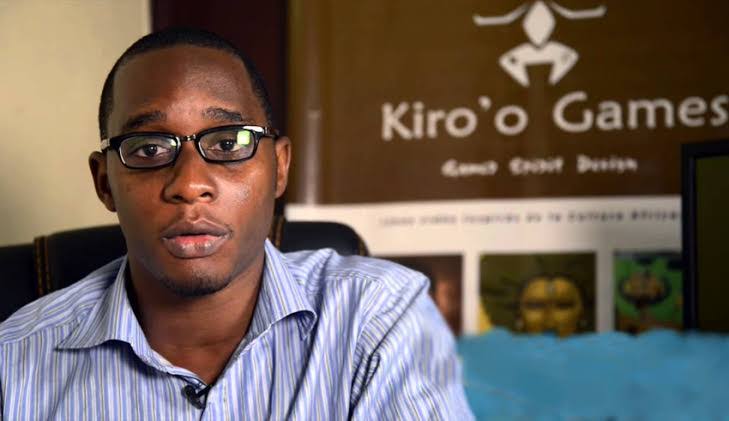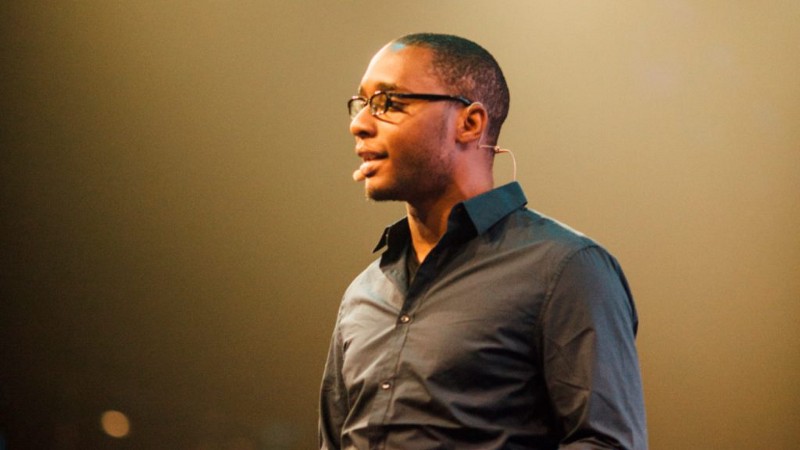Cameroon’s Kiro’o Games Founder Doesn’t Believe Africa Needs The Startup Model. Here’s Why
It’s a long and chequered journey raising funds in Africa. Madiba Olivier, the founder of Cameroon’s gaming firm Kiro’o Games, knows this. In fact, his company has experienced this challenge firsthand. After years of toiling at self-run crowdfunding campaigns, he recently revealed that Kiro’o Games had surpassed $1 million in financing, the majority of which came from regular Cameroonian passers-by eager to own a piece of the firm.

But Olivier has a way of stating the obvious: he had waited until the end of the Strength Sharing Space initiative (#SSSpace), a virtual meeting that brought together leading figures from the Cameroonian and African ecosystems on June 16, 2021 to discuss the issue of funding in Africa under the theme “Investing in startups 237.”
Read also:New $155m Fund For African Solar Energy Businesses, Courtesy Of AREF II Fund
In a series of rather lengthy statements, Olivier says he fully subscribed to Rebecca Enonchong’s explanation of the mindset of international investors. Rebecca Enonchong is a Cameroonian tech entrepreneur.
“Now I’d like to contribute by beginning with a saying that a mentor told me when I first started working at kmer: “The right solution is not always the best”,” Olivier says.
He agrees that the reasoning of international investors around startups and financing is sound, but is now unsuited to Africa’s situation.
Read also:National Bank Of Egypt Adopts RippleNet Blockchain Technology
“To emphasize my argument,” he says, “investors with a Western perspective think like Formula 1 drivers (speed, precision, etc.), but most local entrepreneurs feel like they’re living under the Paris-Dakar racetrack (adaptation, juggling, etc.).”

Olivier says that this disparity in attitude leads to an impossibly difficult conversation.
“When the investor asks you Formula 1 questions, such as how fast you’re going, how fast your team replaces the wheels, and can we view your warm-up lap records? You are lost. Then you’ll have to explain to him why we will not travel across the desert or on the damaged roads (such as Africa’s) with this F1 approach. You will then need to demonstrate how effectively you handle your hydration, co-driver, and map; in other words, your Paris-Dakar components. And this is a stumbling block because the investor wants F1 vehicles,” he says.
Olivier emphasizes more on this Formula 1 mindset of foreign investors while investing in African startup.
“Rebecca said yesterday that when we travel abroad, we see that the majority of companies financed elsewhere in Africa are founded by Western expats. It’s because they’re the only ones who can claim they’ll do Formula One here,” he says.
Read also:At Last, Cameroon’s Kiro’o Games Surpasses $1m Fundraising Target
“And what we see when they are financed is that they bring their F1 vehicle to Africa and it breaks down everywhere, (not all, but many of them). Majority of those which did not break down thrive in situations where “excellent roads” already exist. Take, for example, South Africa, which has excellent infrastructure,” he says.
Olivier says this factor is responsible for why a startup like Kiro’o, for example, is unable to advance in the normal course of things despite its history.
“We’re in 2017, and I’ve just returned from YALI, where I learned how companies like Amazon and others have prospered. We discovered that the trick is to grasp your environment’s sociology and integrate it with technology,” he says.
“As a result, Kiro’o conducted a massive 6-month sociological African field survey. They survey found that if you’re a video game company that just makes video games, you will never win the hearts of Africans due to a variety of societal circumstances,” he says.
But then despite this fact, Olivier says his team proceeded to release their Games + Rebuntu concept.
“We were then faced with a dilemma,” he admits. “Should we tell investors lies? Just talk about video games with them, take their money, and do what we know would work? Or should we persist on non-financing and perish because we are correct but misunderstood? It was an impossible discussion to have,” he says.
Olivier says that when a startup is in “Paris-Dakar” mode, it does not take any particular path.
“Even if you have a strategy and a map, you will go off course frequently.
And a “Formula 1” investor is unaware of this,” he says.
“What’s noteworthy is that after a business has established a solid foundation in its Paris-Dakar phase, it may go on to the next phase; it begins to reach Formula 1 speed peaks,” he adds.
Olivier says that by the end of 2022, “F1 Mindset” investors, will have a deeper and better understanding of Kiro’o.
“Because we will have gained sufficient expertise to know how to drive quickly and perform F1 on deteriorated roads,” he says.
Olivier says the Paris-Dakar business concepts should be used by African companies managed by Africans who are experts in their fields.
“Investors with a Western perspective will demand F1 and will suddenly put their money into foreigners or low-disruptive enterprises,” he says, however.
Olivier says that he is helping to shape this future by reducing risk through financing SMEs and startups in the research or market test phase.
“A venture capitalist cannot put up 100 million fcfa for you to test the market, but 1000 people may put up 100K FCFA,” he says. “And once you’ve passed your test with solid figures, you can go meet the venture capitalists and the entire investment chain that Rebecca described yesterday,” he adds.
Olivier says this is one of the missing connections in Cameroon that has been fixed by certain nations.
“However, we live on a continent where investment is more important than establishing great companies on the stock exchange. We have a 100 million employment shortfall, and we need to build 10 million typical SMEs in the next 20 years. Otherwise, we would perish (famine, etc.) and overseas investors who have already progressed beyond survival will be unable to comprehend French,” he says.
Olivier says this is what has inspired his curiosity.
“We Africans will have to find a way that allows us to invest en masse and construct this SME fabric ourselves,” he says.
“I say it again: For Africa, establishing SMEs is not a fad, a trend, or a fashionable thing to do. It’s our last chance of survival, and we only have 30 years to get there before we perish,” he says. “SME, not startup, is what I’m referring about. So, when we talk about investing, we must keep this in mind.”
Olivier says this is why Kiro’o is working to establish @KirooRebuntu, a platform that aims to bring together 100 million people who invest 10,000 CFA francs ($18.2) each month in small businesses across Africa.
“And stars will emerge from these SMEs who will follow the traditional routes,” he says.
Kiro’o Games founder Kiro’o Games founder Kiro’o Games founder Kiro’o Games founder
Charles Rapulu Udoh

Charles Rapulu Udoh is a Lagos-based lawyer who has advised startups across Africa on issues such as startup funding (Venture Capital, Debt financing, private equity, angel investing etc), taxation, strategies, etc. He also has special focus on the protection of business or brands’ intellectual property rights ( such as trademark, patent or design) across Africa and other foreign jurisdictions.
He is well versed on issues of ESG (sustainability), media and entertainment law, corporate finance and governance.
He is also an award-winning write





